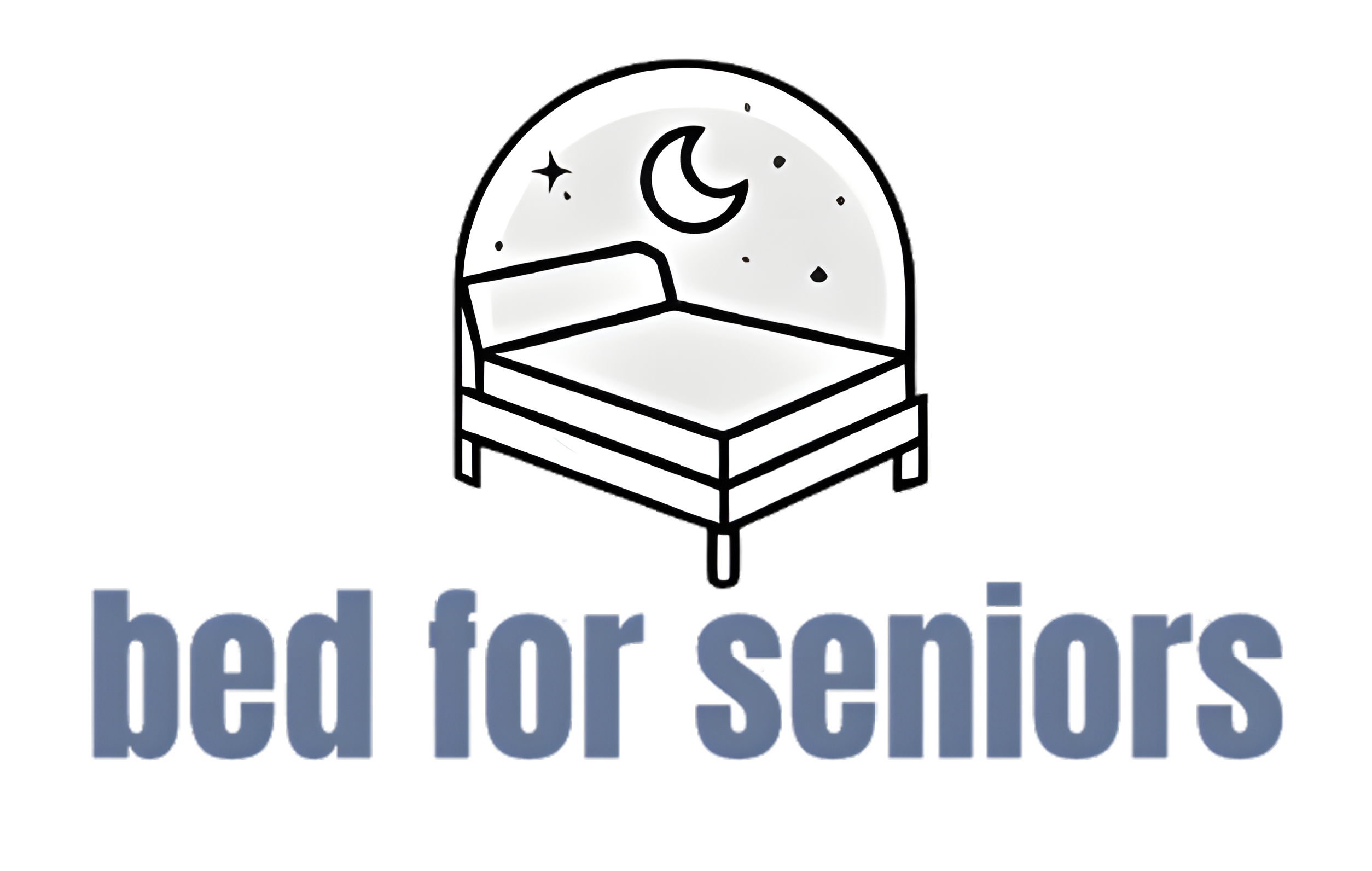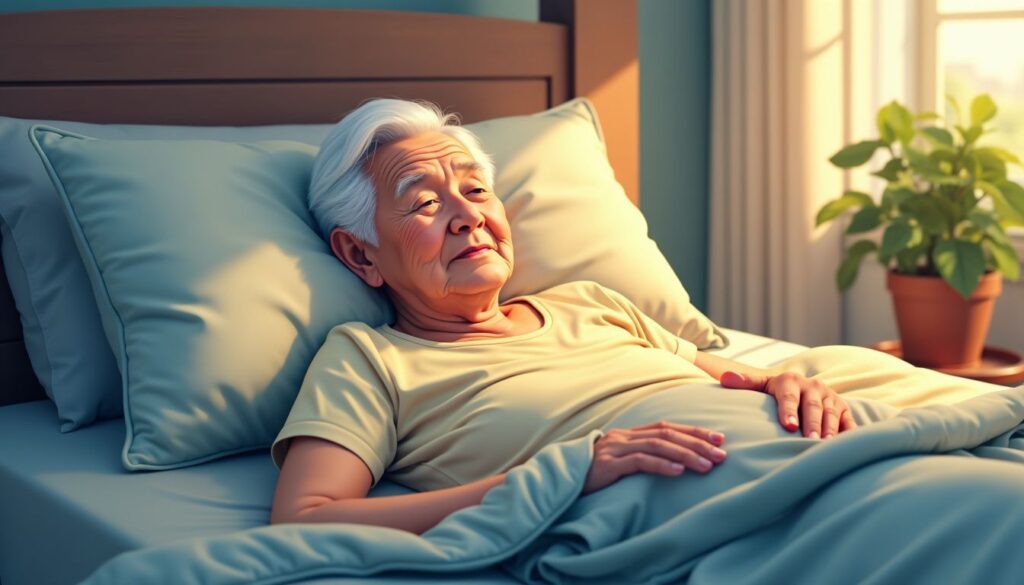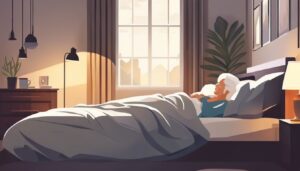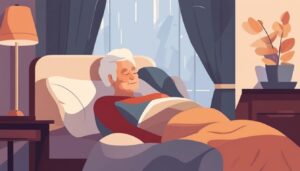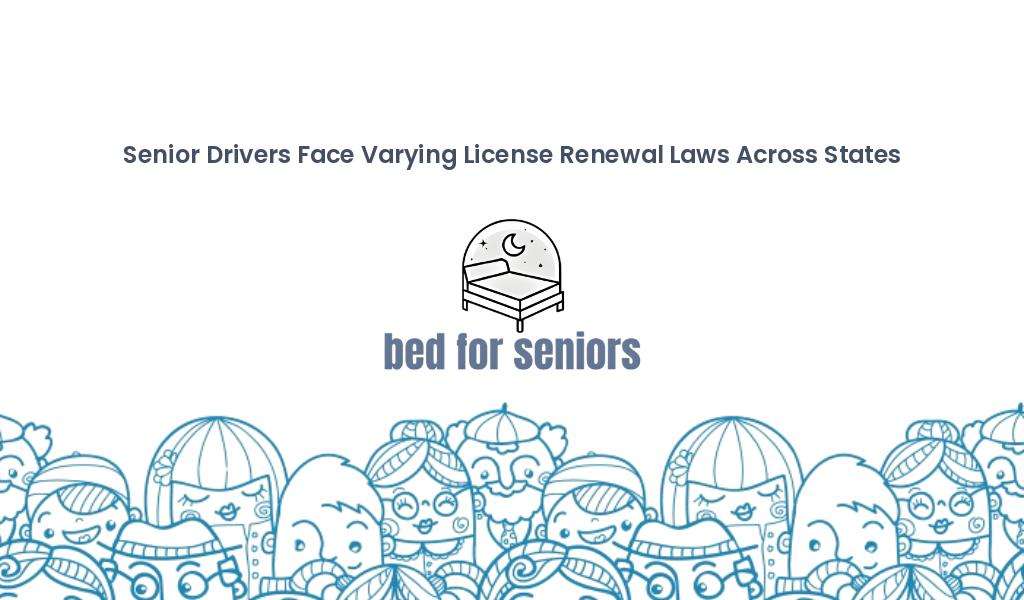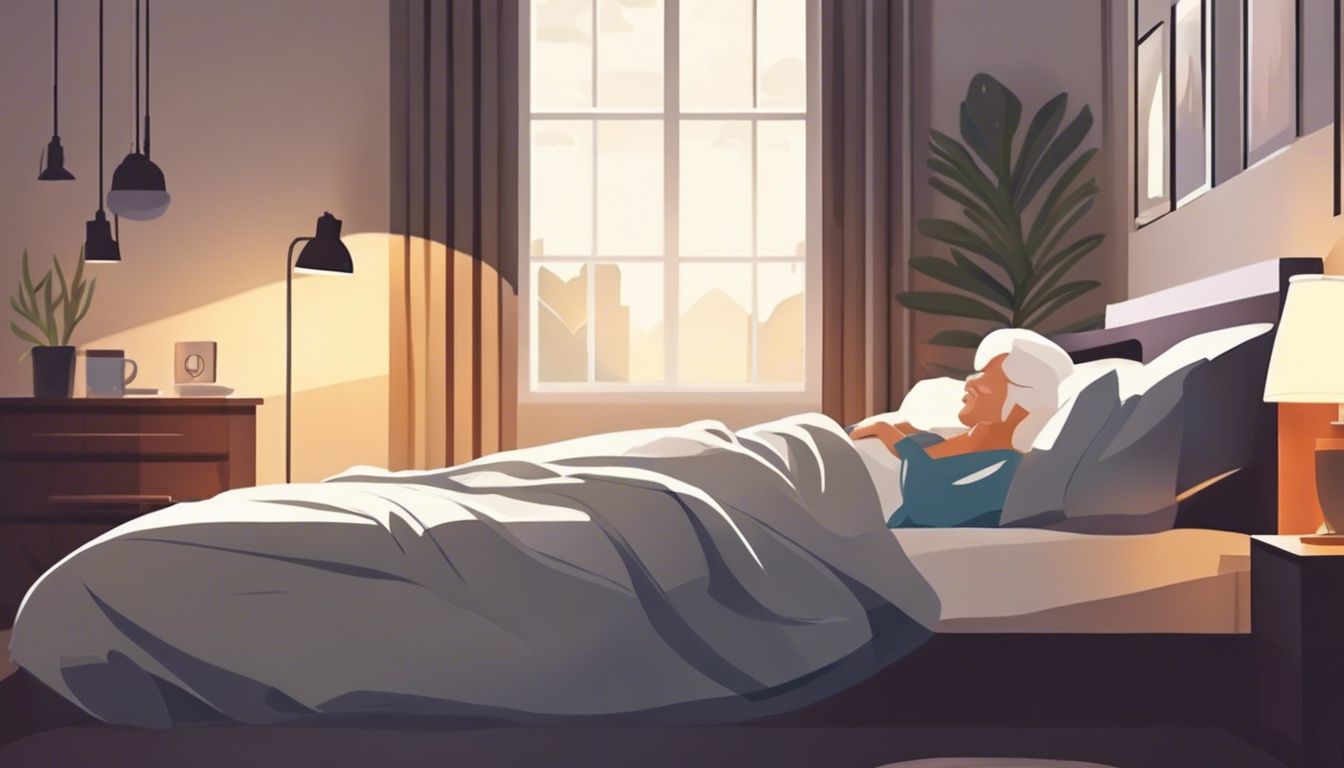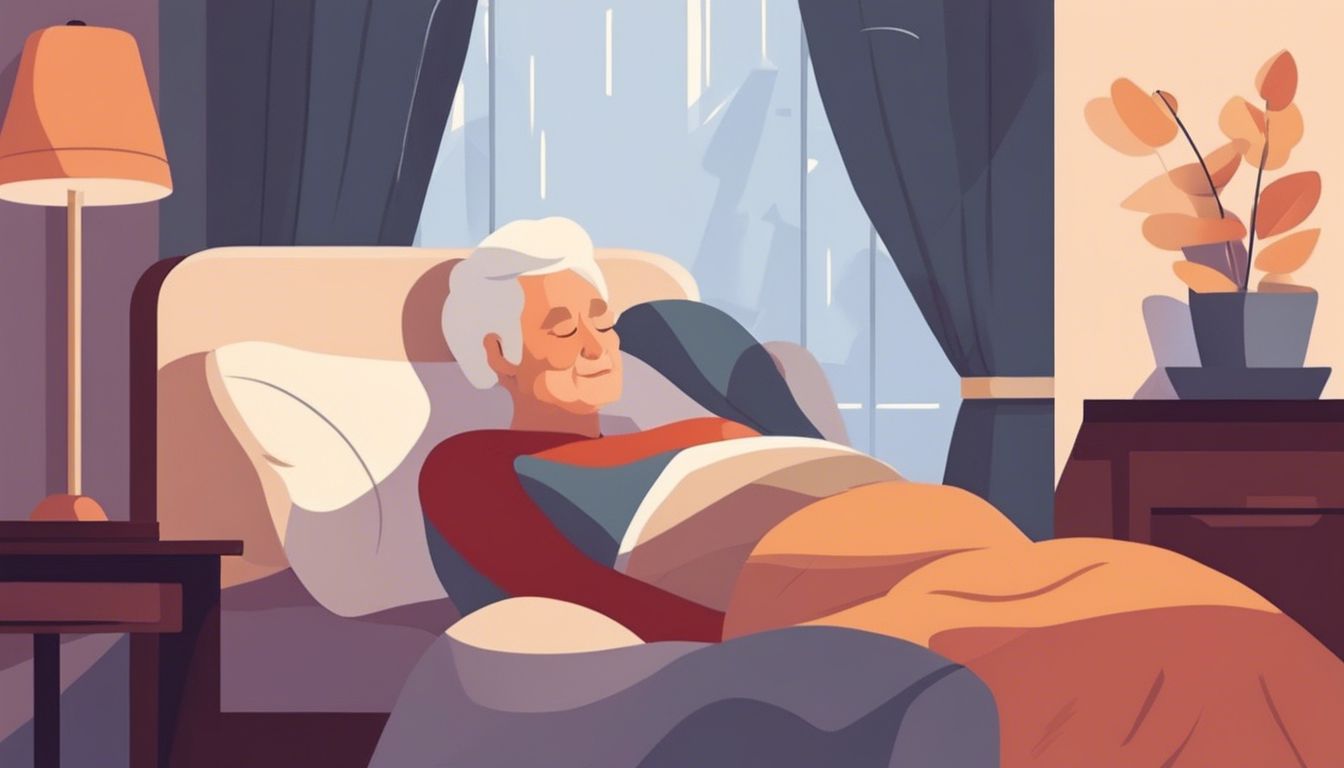Are you worried about how much sleep seniors need? The National Sleep Foundation says older adults need 7-8 hours each night. This article helps you understand their sleep needs and improve sleep quality.
Keep reading for helpful tips.
Key Takeaways
- Seniors need 7-8 hours of sleep each night for good health.
- Pain, medicine, and less activity can hurt the quality of their sleep.
- A steady bedtime routine and a comfy sleeping area help seniors sleep better.
Recommended Sleep Duration for Seniors
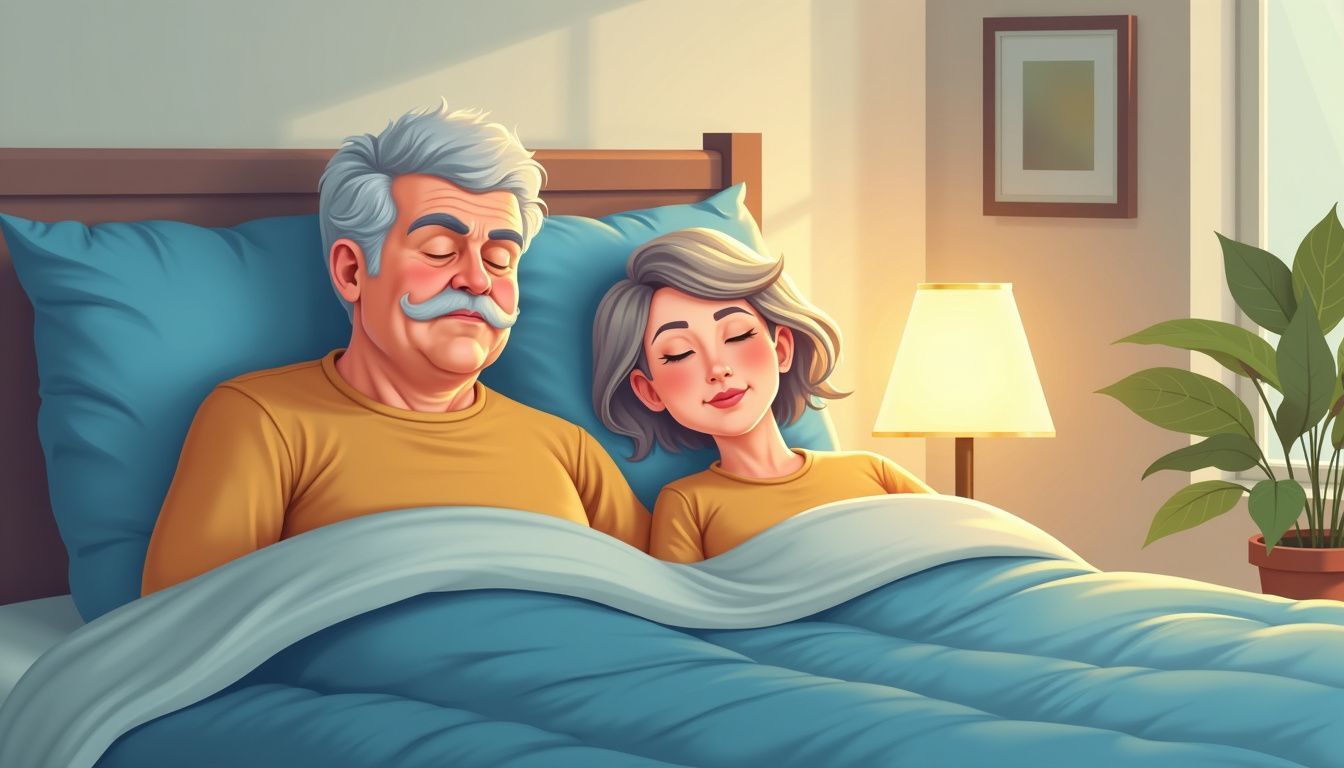
Seniors need about 7 to 8 hours of sleep each night. This helps keep their mind and body healthy, reducing risks for heart problems, memory issues, and mood swings.
Common changes in sleep patterns with age
As people get older, their sleep changes a lot. They often find it harder to fall asleep and stay asleep through the night. Older adults might wake up more during the night and earlier in the morning.
Their sleep becomes lighter too.
These changes can lead to less sleep at night. Instead, many seniors take naps during the day to catch up on rest. This shift in sleep patterns can affect their health and mood, making good sleep habits important for aging well.
Factors Affecting Sleep Quality in Seniors
Many things can change how well seniors sleep—like sore bodies, shifts in hormone levels, effects of medicines and health issues, or even worry and stress keeping them awake. Insights into these aspects can open doors to better rest nights for our older loved ones…
Keep reading to discover more on this topic!
Physical discomfort and hormone levels
Pain from health problems makes it hard for seniors to sleep well. This includes conditions like arthritis and back pain. They disrupt sleep by causing physical discomfort throughout the night.
Hormonal changes also play a big role in how older adults sleep. Changes in hormone levels can affect their circadian rhythms, making it difficult to fall asleep or stay asleep.
For example, lower levels of melatonin might make seniors wake up early or have trouble falling asleep. Managing these issues is key to improving sleep quality for seniors. It means finding ways to ease pain and understanding how hormone changes impact sleep patterns.
Impact of medications and health conditions
Medications can make seniors feel sleepy or hurt their sleep. Some drugs for heart disease, high blood pressure, and depression can cause sleep problems. Health issues like chronic pain, sleep apnea, and dementia also disrupt rest.
This means seniors might not sleep well or enough.
To help, doctors might change medications or treat the health problems causing poor sleep. For example, managing pain better or using devices for sleep apnea can improve rest. It’s key to check on both medicine and health conditions to get better sleep.
What Causes Insomnia in Older Adults
Many older adults struggle with insomnia due to several reasons. Changes in health play a big role. Conditions like depression, heart disease, and Alzheimer’s affect sleep. These issues can disturb rest or make it hard to fall asleep.
Also, pain from illnesses keeps many awake.
Medicines also cause sleep problems. Drugs for conditions such as hypertension, depression, and asthma may disrupt sleep patterns. Lack of physical activity during the day can lead to more trouble sleeping at night.
All these factors come together making good sleep hard for seniors. Next, we’ll explore ways to improve their sleep quality.
Tips for Improving Sleep in Older Adults
Good sleep starts with a solid bedtime habit. Making the room dark and cool helps, too.
Establishing a consistent sleep schedule
Going to bed and waking up at the same time every day is key. This habit tells your body when it’s time to sleep and wake up. It helps control your internal clock. For older adults, this can lead to better sleep quality.
Sleep hygiene matters a lot here. Avoiding long naps during the day and keeping active can also play a big part in sticking to this schedule. A steady routine leads to less nighttime waking and improves overall rest.
Creating a conducive sleep environment
A good sleep space is key for seniors. Make the room dark, quiet, and cool. Use curtains or shades to block light. This helps a lot. A noise machine can also keep out unwanted sounds.
Keep the temperature around 65 degrees for comfort.
Add a comfy mattress and pillows too. These should support the body well to prevent pain. Avoid using electronics in bed because they can hurt sleep quality by keeping the mind active.
Lastly, make sure the room is safe for moving around at night to avoid falls.
Conclusion
Seniors need 7-8 hours of sleep each night. This helps them stay healthy and alert during the day. Age changes how we sleep, but good habits can improve sleep quality. Avoid caffeine and nicotine, keep a regular sleep schedule, and make the bedroom quiet and dark for better rest.
Sleep needs vary, so watch for signs like daytime tiredness or mood swings to adjust bedtimes as needed.
To learn more about the specific challenges older adults face with insomnia, visit our detailed guide on what causes insomnia in older adults.
FAQs
1. How much sleep do seniors need for good health?
Seniors require adequate rest to maintain physical health and wellness, with most needing between 7-9 hours of total sleep time.
2. Can lack of sleep lead to chronic diseases in seniors?
Yes, insufficient sleep or being constantly sleep-deprived can contribute to chronic conditions such as obesity, Alzheimer’s disease, Parkinson’s disease, coronary heart disease and even cognitive decline.
3. What are some common causes of disrupted sleep in the elderly?
Common causes include anxiety causing racing thoughts before bed, medical conditions like obstructive sleep apnea (OSA), restless legs syndrome and neurodegenerative condition like Parkinson’s disease.
4. Can medication affect a senior’s quality of sleep?
Absolutely! Antidepressants like selective serotonin reuptake inhibitors and benzodiazepine medications such as Valium or Klonopin may cause daytime drowsiness that disrupts normal sleeping patterns.
5. Are there any risks associated with long periods of oversleeping for seniors?
Hypersomnia or long duration sleeps could potentially trigger an inflammatory response known as ‘inflammageing’, which might increase susceptibility to multiple chronic diseases including heart failure.
6. What steps can be taken if a senior is experiencing inadequate rest or disturbed nights’ slumber?
Consultation with healthcare professionals such as geriatrician is recommended for proper diagnosis and treatment; counseling on self-care practices emphasizing relaxation techniques; regular physical activity during the day can also aid better nighttime rest.
